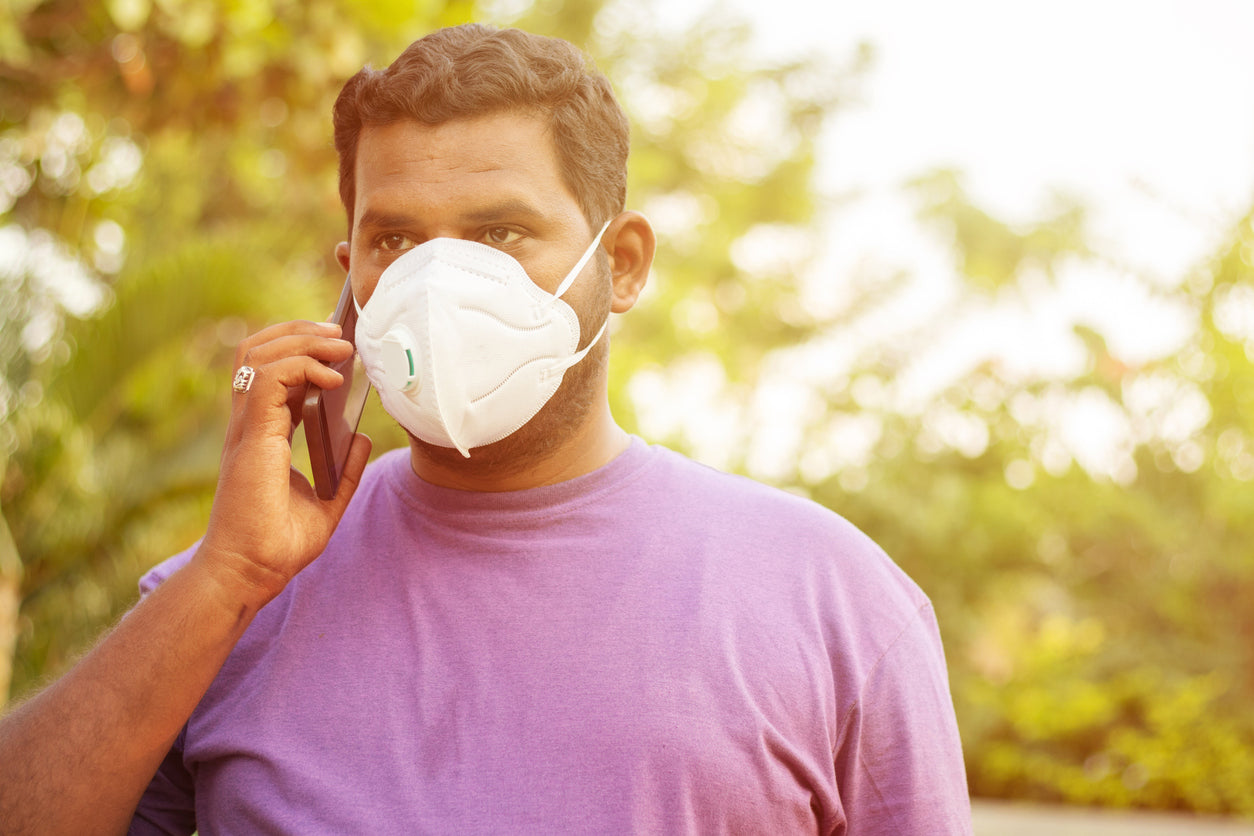
Delhi’s air pollution has reached unprecedented levels. Breathing this city’s air can cause more lung damage than a regular smoking habit. The AQI (Air Quality Index) oscillates between Hazardous and Very Unhealthy on any given day. Children and the elderly must stay indoors as they are the most sensitive group; hospitals in the city have seen a significant surge in the number of patients complaining of watery eyes, cough and breathing difficulty.
Here are five effective ways to protect yourself and your loved ones from the city’s toxic air -
Stock up on Jaggery: Jaggery is sugar in its purest form and industrial workers such as coal miners who work in dusty or smoky environments seem to experience no discomfort when they consume jaggery. Many coal miners are even given a special allowance just so they can purchase jaggery because it’s full of iron. Iron-rich food improves the haemoglobin levels in blood, which increases the oxygen-carrying capacity of the blood and eliminates the effects of air pollution.
Extra tip: Mix jaggery with a warm cup of milk and drink it before going to bed at night, and you’ll wake up feeling refreshed and with clear sinuses.
Wear Layers: Wear a light jacket before stepping out of the house and keep your body (especially feet and head) warm at all times to avoid catching a cold. Layering with natural fibres is the best way to stay truly warm.
Extra tip: Cotton, wool, and silk, are all materials that breathe, but also lock in the warmth.
Exercise Indoors: We’ve all heard the benefits of going for a morning walk, only these days it’s better to exercise indoors, keeping our direct contact with the outside air minimal. We suggest you roll out a yoga mat and do some stretching or if you miss running outside, get on a treadmill for a quick cardio session.
Extra tip: As much as possible, only step outside when the sun is out and avoid leaving the house post sundown or early in the morning.
Air Purifying Plants: Filling your house with air cleaning plants is the simplest way to improve air quality as they can absorb many toxic gases in addition to carbon dioxide. An indoor plant’s ability to remove harmful substances from the air is an example of phytoremediation, which helps mitigate pollution in air, soil or water.
Devil’s Ivy is an easy to grow indoor houseplant that will leave your home feeling fresh and clean. Dwarf or Pygmy grow in partial shade, growing up to six to ten feet.
If you’re a beginner, we suggest you get Spider Plants. They grow in indirect sunlight and survive in just about any condition (they’ve been known to survive in temperatures as low as two degrees). Areca Palms are good for bigger places as they tend to spread out. You’d need to water them a few times a week in the summer but not so much in the winter.
Extra tip: Use air purifiers intermittently as regular usage may increase your dependency on these artificial mechanisms and impact your immunity. For instance, you may spend all day in a room with an air purifier and when you do step out of the house, the poor air quality may affect you more.
Tulsi: Tulsi, also known as the Queen of Herbs, is packed with many health benefits including treating cough and improving your immunity. It is also known to protect the organs and tissues against chemical stress from industrial pollutants and heavy metals.
Extra tip: Buy tulsi concentrate from your nearest pharmacy and take two-three drops of it in a glass of water twice a day. Tulsi’s antimicrobial and anti-asthmatic properties will help the body cope with toxin-induced damage and restore its physiological function.

Comments (0)
Back to News